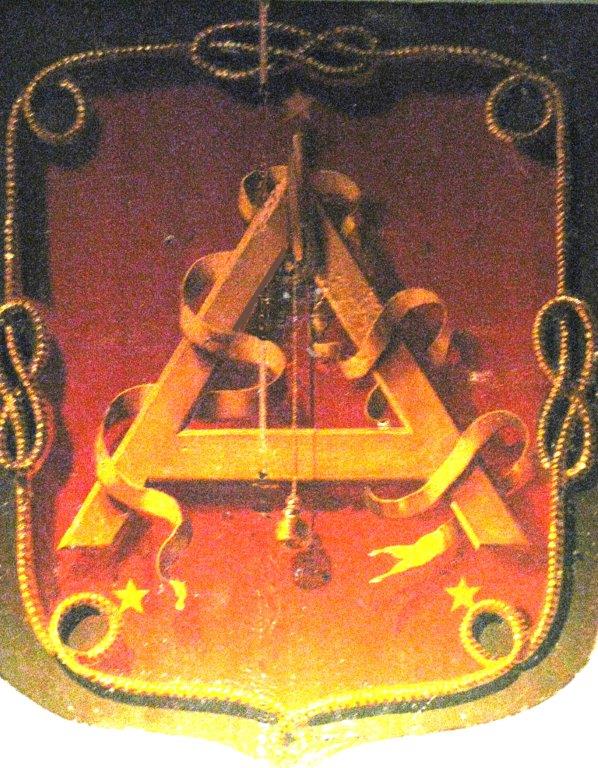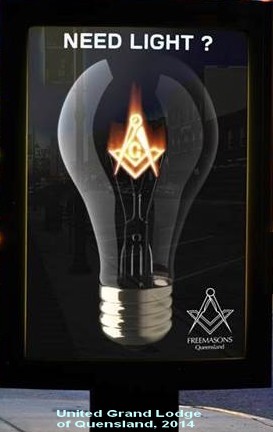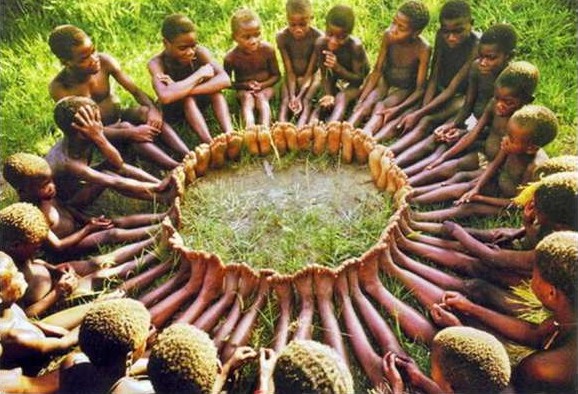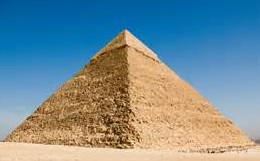- 1 Does Freemasonry rule the world?
- 2 The political role of Freemasonry.
- 3 Modern Freemasonry – a tool of "globalization"?
- 4 The inconsistencies of Freemasonry.
- 5 How to resolve these contradictions?
...
...
1 Does Freemasonry rule the world?
- Enemies of Freemasonry accuse it of having hegemonic aims. Evoking the mystery surrounding its meetings, such enemies claim its secrecy proves its domineering intentions.
- ...
- But they intentionally "forget" other more secret organizations, starting with the boards of directors of large companies, not to mention various clubs and "think tanks", the councils and other meetings of religious leaders, the Communist International, the Trilateral Commission and the Bilderberg group, the intelligence services and the military chiefs, etc. All these organizations have proven to be much better equipped to direct the minds of entire sectors of the economy and finance, and, on some occasions, even countries.
- ...
- Freemasonry is also a convenient scapegoat for all those who want to divert attention from their own actions.
- ...
- For example, Hitler and Stalin severely maligned and persecuted, imprisoned and often even killed Freemasons. To varying degrees all dictators have done the same except, curiously, Castro. Stalin disliked the Catholic Church, too, and mockingly asked the Pope how many divisions he had. The Vatican only has an army of Swiss Guards – :) yet nonetheless, it exercise an influence an 2 billion followers (1). Freemasonry, even at its peak, has never had more than 7 million members.
- In any case, in the era of "globalization" no one can achieve the submission of all humanity. Even those with atomic bombs understood quickly enough that they would never succeed. So, the Freemasons... (2)
- ...
- ...
" E pur si muove ! "
2 The political role of Freemasonry.

Most obediences (administrative groups of Freemasons) focus on spirituality and morality. In the United States, they have a predilection for charitable acts. In Europe, South America and Africa, some obediences also invite their members to discuss the economic, legal and political issues of the day, and then publish the conclusions of their talks or present them directly to the leaders of their countries. In this way, the Feminine Grand Lodge of France contributed to the drafting of the law on abortion, the Grand Orient of France participated in the development of the Leonetti Act on the end of life, and so on.
- None of this implies that Freemasonry has power. There is a big difference between power and influence. Freemasons are supposed to exercise the power they actually do not have (not as an organization; individually they can of course be part of decision-making bodies). On the other hand, Freemasonry has influence because it has always attracted the elites (i.e. educated men and women, often decision makers in their secular life) and the initiation allowed them to evolve humanly even further.
- ...
- Although Freemasonry does not provide any pre-established education, in some ways its influence is comparable to that of a university - which no one would accuse of wanting to dominate anyone. (3)
...
Does Freemasonry help its members gain power?
- Because, most often, one becomes a Mason aged 40, 50, or older, so applicants can already exert power by holding leadership positions. As for social climbers who hope to achieve this through Freemasonry, they are quickly disillusioned and sometimes quit in the first year. But most continue to attend their lodge because they discover other attractions - of an initiatory nature.
- ...
- Initiation is a particular process that encourages personal development and promotes spiritual fulfilment.
- ...
- Masonic temples are indeed a small-scale model of the world. The rites and symbols facilitate understanding and help members to adapt.
- ...
- In this context, those who have a talent for leading a company, city, international organization, etc., may observe the daily life of the lodges and obediences and then, by later becoming directors of such lodges, exercise power. Here their pursuit through trial and error has no consequences and any mistakes will be rectified by their brothers. Working at a lodge also allows Freemasons to maintain some distance from their secular lives and professional field, which can make them more effective in their role as decision-makers outside the temple (4).
- ...
- They exercise this power individually to the extent of their abilities and interests. They may possibly be associated with other Freemasons who are close to them, but no obedience will require its members to follow a political, economic or social program - for the simple reason that the obediences follow no such programs. Historically such programs are not the purpose of Freemasonry. Furthermore, because lodge members represent a very broad spectrum of often-conflicting opinions, Masonic organizations would struggle to develop consistent projects amongst themselves. At most, the obediences can distinguish themselves by increased sensitivity to change, and therefore be considered on the left or, in contrast, to be more likely to safeguard traditional values closer to the political right.
- ...
- To be honest, belonging to the Freemasons can open some doors: it is recognized as a moral authority and that can facilitate dialogue with leaders. But this does not guarantee that the requests, opinions and advice of obediences, lodges or individual members are heard.
- ...
- All this is far removed from the totalitarian conspiracy that some suspect of Freemasonry.
...
"E pur si muove! ", bis repetita
3 Modern Freemasonry – a tool of "globalization"?

By the early 18th century, the world had entered an era of profound change, which we are still living today.
- The great minds of the Royal Academy in London who met in four "speculative" Masonic Lodges ("speculative" because they had no link with the "operative” Masons who built cathedrals) had the knowledge and intellectual means to understand this change in civilization. They recognised the growing interdependence of all people, maybe even of all living things on our planet, a topic that re-emerged about two centurie later through environmentalists. (5)
- ...
- From 1717 to 1723, inspired by all previous civilizations and cultures, they created modern Freemasonry to enable them to meet these changes. Their lodges became places of freedom where "men of quality" could meet and talk, away from the influence of religions. Most if not all members being Christians, they did not seek to challenge the authority of the Church. Nevertheless, a world moving towards a planetary civilization had to find a way to understand, accept and bring humanity together in all its diversity, beginning with metaphysical beliefs. The religious wars had gone on too long...
- ...
- Anderson's Constitution formalized the rule of religious tolerance by also stating the objective of bringing together good Men and true, or Men of Honour and Honesty, by whatever Denominations or Persuasions they may be distinguish’d; whereby Masonry becomes the Centre of Union, and the Means of conciliating true Friendship among Persons that must have remain’d at a perpetual Distance.
- This expressed a desire for universalism.
- ...
- This new Freemasonry reflected the spirit of the time. It quickly spread from England into Scotland and France, and then attracted followers around the globe. Freemasonry has adapted to the environment of its new host countries, and as such has become very diverse over the years. It has also been at the root of many misunderstandings, many of which remain today.
- ...
- Despite Freemasonry breaking off into numerous branches, its united deep structure works and all lodges produce the same result: places where the ideal of liberty, equality and fraternity is best approached.
...
43 The inconsistencies of Freemasonry
- ...
- Curiously this trinity (liberty, equality and fraternity) is struggling to apply itself to communications between the obediences. Like humanity, Freemasonry has developed many "cultures" that are not always able to hold a dialogue. The roadblocks to relations between obediences are contrary to the universality of Anderson's Constitution, which all members strongly believe in.
- ...
- Most Freemasons to resign themselves, but these divisions influence the lodges' practices and are not unimportant compared to their initiatory meaning.
- The purpose of initiation has always been threefold: to help individuals undertake the necessary transition from self to others, to accompany them on this journey, and to serve them as they become full members of their groups. To successfully integrate, one needs to know that he/she is accepted by society.
- Like all traditional initiations, Freemasonry aims to achieve the transition from "childhood" to adulthood. This involves no longer being the centre of one's own world but rather finding one's place in society. Indeed, Indeed, individuals are an integral part of several societies - the family, tribe, business, city, nation or religion - and they are often willing to sacrifice themselves for one or the other because they feel such institutions are more important than themselves.
- This seems clear, but the transition from individualism to feeling a sense of belonging to social structures is not a spontaneous event. (6)
- ...
- As an initiatory movement, Freemasonry invites its followers to question themselves, encourages them to overcome their selfishness and abandon their prejudices, helps them to see themselves in a new light, and deepens and sometimes changes their understanding of the world and their vision of the universe.
- ...
- In traditional societies, initiation involves teenagers. In Freemasonry it concerns adults. Today the ultimate "society" is humanity. The Masonic initiation targets getting applicants to this level. Attempting to do this in adolescence would be premature. (Our societies leave teenagers to fend for themselves. Not all of them succeed. Part of the difficulty of our families, businesses and nations derives from that...)
- ...
- More specifically, modern Freemasonry offers insiders the opportunity to understand that - despite the incredible diversity of humanity - every human is their brother or sister. Contemporary genetics confirms that we all belong to the same family. This implies a political project for humanity that, however, has nothing to do with a concrete model of governance, nor with the will of domination.
- Therefore, from a strictly Masonic point of view, the lodges and obediences being a symbolic image of the world, their members should learn to respect all their variants. Q.E.D. This is what it had to prove.
- ...
- ...
- ...
- ...
- For thousands of years, at all levels of society, from family to kingdom, to empire, the best governance was vertical. So it's to be expected that the United Grand Lodge of England would be built in this way. It has built a formidable pyramidal organization around the world, well-structured and relatively homogeneous without being locked into a single dogma. Being a part of it is rewarding and members of this confederation attach great importance to it.
5 How to resolve these contradictions?

United Grand Lodge of Quensland, 2014
However, the "globalization" process that began during the Renaissance, developped in 17th and 18.th centuries and which is culminating today, also requires a different, horizontal model of social, economic and political relations.
- In the 21st century the two management systems, vertical and horizontal, are essential. Humanity has entered a period of exchanges and confrontations between all civilizations, each too different from each other to adapt to a single lifestyle and governance. On this scale, a horizontal organization could be more effective than vertical because it better accommodates diversity and appreciates such diversity as a source of inspiration. However, to unite all mankind without major disaster, we will have to use all of the knowledge accumulated over thousands of years by its various components.
- ...
- For the Freemasons, this "horizontality" is practised with more or less success by the obediences that are not part of the English system, less numerous but with great vitality. These obediences seem more accepting of social diversity and are more diverse in their practices. If they are also organized on a vertical plane, the links between lodges and head offices are pretty relaxed, and agreements between the obediences are less firm and often short term. However, their members would not want to give up their freedom of conscience or their influence on social evolution. They are as proud of it as their counterparts in the United Grand Lodge of England for their excellent organization and unity.
- ...
- As an elite group, the Freemasons must complete their quest for universalism by building bridges between all their obediences (without damaging the river banks...) - following a horizontal plane. This is part of the Masonic initiation.
- ...
- Like the nations - often mortal enemies - who created the UN where they learned to work together (mixing vertical and horizontal governance), and churches that have ceased excommunicating each other (only radical factions still call for the exterminating of "infidels"), shouldn't the Freemasons who have never conducted any war, neither outside their movement or between its various currents, all be able to join together in a universal organization?
- ...

- ...
- One potential path towards this goal would be the establishment of a World Confederation of Masonic Obediences.
- ...
- Such Confederation would retain the diversity of current Masonic organizations approaches and alliances. It would not alienate its members any more than the UN changes its member states. It would not create a "super-obedience" but rather continue the work of modern Freemasonry’s founders who designed it as a way to learn tolerance.
- ...
- To create such a union would undoubtedly be difficult but not impossible.
- ...
- Achieving such union would call for the humility to not believe oneself better than another, either individually or collectively, and the wisdom to stop imposing one's own truth, abandoning the dream to dictate.
- ...
- Freemasonry has an important role to play in today's world. Compared to this task, its internal divisions cannot be overlooked. Making the leap is within reach of the "insiders" (7).
- ...
- The World Confederation of Masonic Obediences project is discussed in the Explanations section and detailed further in the Forum section of this site.
- ...
- N.B. : The Confederation project developed from my discussions with some sixty members of various Masonic organizations in Germany, England, Belgium, France, Czech Republic and Slovakia. But any weaknesses in its final drafting are my sole responsibility. I did what I could, now must do better the one who can, may I conclude with the words of the great Russian director Stanislavski.
- ….................
- (1) http://www.lemondedesreligions.fr/savoir/plus-de-2-milliards-de-chretiens-dans-le-monde-21-12-2011-2138_110.php
- ...
- (2) Freemasons enjoy noting that they alone don't know they hold planetary power.
- ...
- But then if Freemasonry has nothing to hide, why is it shrouded in secrecy?
- In Europe, Freemasons served as scapegoats of the Catholic Church, the Bolsheviks and the Nazis, who deported and killed them by the thousands. This explains why Freemasons are reluctant to admit their membership of the movement. Prejudice and mistrust have a long life... Freemason lodge members proudly display their membership in Great Britain ans in USA, where no members have ever been persecuted. (The United States experienced an anti-Masonic movement in the early 19th century, sparked by the murder of William Morgan and fuelled by the Anti-Masonic Party and various churches, primarily Baptist.)
- However, even in these countries Freemasonry is cloaked in mystery, which is an essential constant of initiation societies. The transition they organize is not only rational, it is carnal and affects the initiate's entire being. This makes it personal, private and "secret" because it is difficult to express.
- "Isha Schwaller de Lubicz (French Theosophist and Egyptologist) tells us that the word 'cheta' that we translate into 'secret' does not have the general meaning given to the word in French: that which one wants to hide. 'Cheta' most often means 'unattainable'. The unattainable is what we cannot touch, reach, or know because of the insufficiency of our means. An unattainable summit is not 'hidden' but rather cannot be reached by an inexperienced climber.'' (Marcel Spaeth Under the Veil of the Secret Master, 1990, p.47).

- ...
- This does not prevent us from posing the question of what happens in the lodges. And above all, what can they be used for? Several thoughts and an attempt to explain appear further on.
- ...
- (3) The majority of obediences would not agree with the statement that a lodge’s work may be related to social organization. It is not their the goal. On the contrary, they believe it disrupts the initiation that must help their members grow spiritually. I have explained above, when comparing Masonic initiation to those of other traditional societies, why initiation could occur on several levels. Everyone can choose his or her own.
- (4) This is obviously only a sketch of what we can do within this small-scale model of the universe – a theme developed in the Reflections chapter in the article What is a Masonic Lodge Good For? on this site. The use of rites and symbols are explained in Symbolic Words, Art and Thoughts.
- (5) See the Reflections chapter for more about the above quote: Does Freemasonry still make sense in the 21st Century?
- (6) In one of these entities, man can assume the role of the brain, in another that of an arm, a leg, the stomach, the liver, the blood... We more or less consciously accept it, either willingly or forced and resigned.
- However, this is only an image. It is worth considering but should not be taken at face value. No social body is constituted like a human being with a head, heart, kidneys, numerous bacteria to digest food... The division of tasks between its "organs" exists, but each person also contributes to the good (or bad) advancement of the overall social body to which he/she belongs. Even if primarily dedicated to a humble role, everyone can enrich their "brain". Just look around a bit to see that. Masonic Lodges are exceptionally fertile grounds for this discovery: their work often reveals unsuspected qualities in their members.
- ...
- (7) After 25 years of rather intensive practice, I still find that Freemasonry is a small miracle in a world plagued by the pursuit of profit, hatred and countless bloody conflicts.
In all the lodges of all the obediences that I visited - aligned to religions or not, oriented towards metaphysics, or preoccupied with social issues, "unisex", "mixed", "regular," "recognized", or not - the same fraternal atmosphere reigns. This atmosphere is expressed through the interest individuals show in one another, listening, acceptance of others’ opinions, and especially the awareness that we are all fundamentally the same.
- Despite the inter-obediential bickering, Freemasonry is united on this point.
- I will try to express in other writings how and why it works.
- ..............................
-
To contribute to the costs of translation and of publication, thank you for making a donation.







